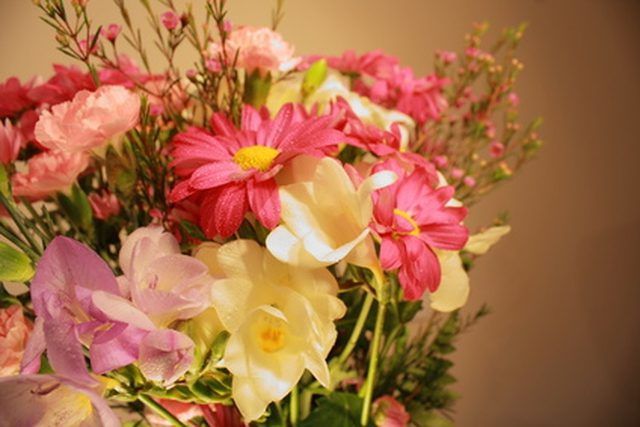Bulbs
Flower Basics
Flower Beds & Specialty Gardens
Flower Garden
Garden Furniture
Garden Gnomes
Garden Seeds
Garden Sheds
Garden Statues
Garden Tools & Supplies
Gardening Basics
Green & Organic
Groundcovers & Vines
Growing Annuals
Growing Basil
Growing Beans
Growing Berries
Growing Blueberries
Growing Cactus
Growing Corn
Growing Cotton
Growing Edibles
Growing Flowers
Growing Garlic
Growing Grapes
Growing Grass
Growing Herbs
Growing Jasmine
Growing Mint
Growing Mushrooms
Orchids
Growing Peanuts
Growing Perennials
Growing Plants
Growing Rosemary
Growing Roses
Growing Strawberries
Growing Sunflowers
Growing Thyme
Growing Tomatoes
Growing Tulips
Growing Vegetables
Herb Basics
Herb Garden
Indoor Growing
Landscaping Basics
Landscaping Patios
Landscaping Plants
Landscaping Shrubs
Landscaping Trees
Landscaping Walks & Pathways
Lawn Basics
Lawn Maintenance
Lawn Mowers
Lawn Ornaments
Lawn Planting
Lawn Tools
Outdoor Growing
Overall Landscape Planning
Pests, Weeds & Problems
Plant Basics
Rock Garden
Rose Garden
Shrubs
Soil
Specialty Gardens
Trees
Vegetable Garden
Yard Maintenance
Flower Arrangement Training
Flower Arrangement Training. You don't have to be a trained florist to create show-stopping flower arrangements. With some basic education, you can quickly learn the steps necessary to put together an elegant, sophisticated floral design in only a few steps. Professional florist schools will give you the most in-depth education, though at a price....

You don't have to be a trained florist to create show-stopping flower arrangements. With some basic education, you can quickly learn the steps necessary to put together an elegant, sophisticated floral design in only a few steps. Professional florist schools will give you the most in-depth education, though at a price. Community colleges, on the other hand, offer classes that aren't likely to be as expensive. Online courses are another affordable option, yet even they will provide the training you need to create designs of which you can be proud. Your local florist also may be willing to provide you with some hands-on training. Finally, for a truly learn-at-your-own pace, books offer excellent training.
Professional Florist Schools
Choosing to go to professional florist school may sound daunting, but if you think there is a chance you might want to pursue flower arranging as a career, then attending a florist academy could be worth your while. The Society of American Florists, the primary florist association in the United States, can recommend several schools.
Community Colleges
If you are a hobbyist who wants that extra edge of flower-arranging knowledge, then taking a course at a local community college can provide the basic understanding you'll need. Classes are likely to focus on how to care for flowers, what the basics of floral design are, how to extend the vase life of an arrangement and how to create artificial floral designs.
The Society of American Florists offers a comprehensive listing of all floriculture training available in the United States. Scrolling through this course, you'll see schools in every state. Those teaching flower arrangement classes are identified with an "FD" for Floral Design. Find your state on the list and then identify which school is located nearest you to sign up for courses.
Online Courses
While online training sounds like it would be fairly laid back, you may discover it is as intensive as attending a floral school class. So look over the options carefully to ensure you aren't signing up for a course that offers more specific training than you need. You'll learn from these courses via DVDs and web-based training tutorials. Some courses will even provide feedback from the instructor. Once you e-mail photos of your floral designs, the instructor will send you comments in return.
Local Florists
Many florists offer hobbyists the opportunity to learn the basics of flower arranging in their shops. They typically have large areas in which to teach because they require the space for creating masses of arrangements for holidays such as Valentine's Day and Mother's Day. When that space is not being used for these high-volume events, florists take advantage of the space for teaching classes. These classes tend to be informal and lower cost than formal courses, and you still get the advantage of the expertise of a real-world floral designer's experience. To find local florists who might be offering courses, contact your local wholesale floral supplier (in the phone book or online) and ask if any of their retail customers offer classes. The wholesalers typically will be familiar with their customers' activities due to the types of orders they regularly put in.
Books
Any online search or visit to your local book store will put you in touch with a wide variety of books on the subject of flower arranging. Popular floral designers often write on the topic, but others who specialize in floral education also publish tomes on the subject. One company that is well-known in the industry due to its publication of two respected magazines for florists is Florists' Review Enterprises Inc. This company regularly publishes how-to guides for its florist readers that are just as popular with hobbyists wanting to create bouquets and vase designs. You can find their books online at Amazon and other bookseller websites, at the company's website and also at hobby retailers. Read reviews by other readers to get insight on which books they recommend and then make a decision based on your specific interests, such as casual bouquets, high-design arrangements, Japanese-style Ikebana creations, etc.